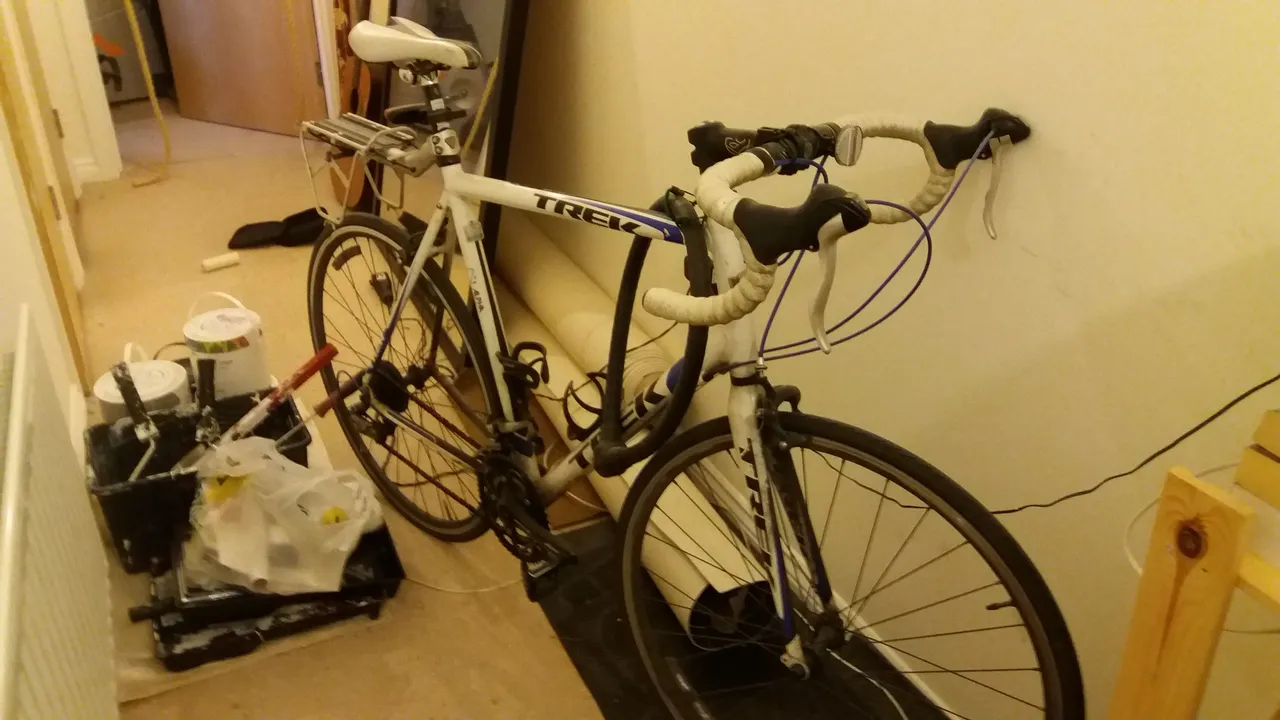In my experience cycling is most efficient means of transport in terms of cost and time.
I bought a TREK 1.2 in 2011, which is an entry-level road bike, for £700 (the price has since come down) for £700 and to date, four and a half years on, have spent about the same amount on clothes, gadgets, gear, tools, and maintenance, given me a total expenditure on my bike of £1425 to date.

I cycle to work three to four times a week, although I tend to walk more in December and January because it's pretty horrendous cycling in the dark and the cold. I work 39 weeks of the year (us teachers get 13 weeks 'holiday' a year, which isn't sufficient time to heal from the extreme levels of psychological abuse you're forced to both give and take during term time, hence the early-retirement drive), and 39 weeks *3 (average bike journeys per week) *4.5 – (years since purchase of current bike) = 526 journeys since bike and gubbins purchases.
£1425/ 526 = £2.70 per trip to work (and falling), which to my mind is pretty good given that it takes me half the amount of time to cycle to work compared to walking – just under 40 minutes walking works out at 15-20 minutes cycling once I've factored in the faff factor of getting kitted/ unkitted/ locked at both ends of the journey.
Irritatingly, as it stands the average cost of £2.70 is 10 pence more than the cost of the average daily train fair to work, which would be even cheaper if I got a monthly or yearly season ticket, but given that the train tempts me towards the dreaded Puccino's Cappuccino, in reality the average daily cost of the train journey would end up being greater than the average daily bike journey even with an annual season ticket. If I got the train to work on a regular basis I would gravitate towards coffee-on-the-train at least once a week, probably more, in fact before the bike, this was a near-daily ritual.
In any case, after 6 years of use, assuming a total 6 yearly cost of £1500 (I've got all the tools I need and gear lasts a while, so I don't anticipate much future expenditure) then the average daily commute comes out at £2.13/ journey, which is cheaper than any ticket-combination purchase option.
On top of this there's the added enjoyment I had in my first year of going on long weekend cycle rides, plus the benefits of the few dozen 20K fitness rides I've done to break up my usual running schedule, but It's hardly worth costing and factoring those things in – suffice to say the above costings are on the high side, and if anything the cost per journey is lower.
Also, getting the train to work is a wholly unpleasant experience because it means soaking up the negative 'work-dread' vibes from the masses, not to mention the feeling of being shafted when the inevitable train delays remind you of the profit being drained out of a once functional nationalised system into the pockets of distant shareholders.
The ultimate clincher for the economic argument for cycling to work is that the average cost of cycling to work drops for every additional year I use the bike. Because I've bought a quality machine that should last me decades, baring a major accident, my future outlay updating parts, gear and tools, and maintenance costs will be minimal enough for a continued reduction in my average annual cost of transportation.
So to conclude this section, what my case demonstrates is that even if the costs of an equivalent train fair to work is relatively cheap, and even if you are strong enough to resist buying coffees on the train, assuming you buy a very nice bike and maintain it yourself, it will take you 6 years to.
Of course if your local public transport is more costly, and/ or you're prepared to buy cheaper, and you cycle into work more often than a mere 100-ish journeys a year, your bike will pay for itself in a much shorter space of time.